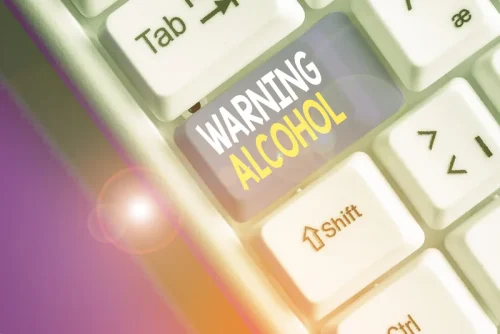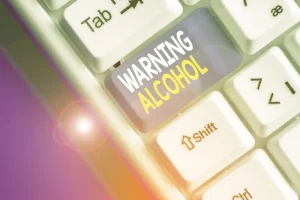
The alcohol will continue to circulate in the bloodstream and eventually affect other organs. Excessive consumption of alcohol causes alcohol-related neurologic disease. When you consume alcohol, it’s absorbed into your bloodstream from the stomach and the small intestine. Cerebellar degeneration caused by alcohol occurs when neurons in the cerebellum deteriorate and die. The cerebellum is the part of the brain that controls coordination and balance.

How is alcohol-related neurologic disease treated?

Toxicology screening is typically done with a blood or urine sample, and can also indicate if any other substances are in your body. If you’re receiving inpatient treatment, your doctor may perform toxicology screens more than once to monitor your alcohol levels. Contact your doctor right away if you’re concerned about the symptoms you’re experiencing during alcohol withdrawal. Most symptoms will typically peak five days after they begin and will begin to decrease about five to seven days after they begin. In one study, 10 percent of 532 male patients admitted to a Veterans Affairs Hospital for AW developed hallucinations (Tsuang et al. 1994).

Alcohol Withdrawal Seizures: Causes, Symptoms & Management
There is no recognized treatment to slow or prevent this kindling process. In animals, benzodiazepines have yielded variable effects, in some cases slowing withdrawal-induced kindling, and in other cases, causing paradoxical worsening (65,66,89). Whether other agents used in the https://ecosoberhouse.com/ treatment of alcohol withdrawal have antiepileptogenic potential remains to be determined. Repeated detox attempts can increase the risk of a severe withdrawal syndrome, including alcohol withdrawal seizures, due to the kindling effect, and a severe withdrawal syndrome called delirium tremens (DTs). Chronic alcohol abuse is linked to an increased risk of epilepsy (seizure disorder).

How does alcohol affect people with epilepsy?
At Discover Recovery, we work with a wide variety of health insurance providers so withdrawal seizures symptoms those in need can get access to the treatment they need. That means you (or your loved one) won’t have to worry about covering the cost of treatment. Instead, all of your energy and focus can be spent where it’s really needed, which is on overcoming addiction.
Neurological Manifestations of Withdrawal: Shakes, Seizures, and Delirium Tremens
- There is no current evidence that alcohol-related seizures confer additional maternal or fetal risk, over and above those of alcohol abuse and seizures independently.
- Abrupt cessation of alcohol intake after prolonged heavy drinking may trigger alcohol withdrawal seizures.
- Co-occurring medical problems may obscure the diagnosis and treatment of DT’s or worsen the outcome.
- The pathophysiology of alcohol seizures involves the central nervous system (CNS) and is related to the abrupt reduction in alcohol intake after prolonged heavy consumption.
- Moderate alcohol consumption is the best strategy for reducing the risk of alcohol-related brain damage.
- They can also review and adjust any medications that could adversely interact with alcohol, thereby reducing seizure likelihood.
In humans, this is typically measured by assessing a startle response (eye blink) to an auditory stimulus. In contrast to the dampening effect of alcohol on acoustic startle amplitude in healthy controls (Grillon et al., 1994), exaggerated startle responses have been reported in detoxified alcohol-dependent subjects (Krystal et al., 1997; Schellekens et al., 2012). As shown in Table 1, the sodium channel–blocking antiepileptic drugs carbamazepine and phenytoin are weak or ineffective in rodent models of alcohol withdrawal seizures, which corresponds with their lack of effectiveness in many other types of generalized seizures. In line with results from animal studies, there is little evidence that carbamazepine prevents alcohol withdrawal seizures and delirium in humans, although it may be useful to treat alcohol craving (1). Similarly, phenytoin is not effective in protecting against the occurrence of seizures in withdrawing alcoholics (71,72). Valproate is protective against alcohol withdrawal convulsions in mice (73).
- A diagnosis of alcohol withdrawal seizures was suspected and treated with lorazepam 4 mg as needed, according to the CIWA-Ar.
- For example, the “holiday heart syndrome” consists of episodes of abnormal cardiac rhythms following a bout of drinking (Smith 1995).
- Alcohol works as a depressant on the central nervous system and alters the function of gamma-aminobutyric acid (GABA) receptors.
- Particularly in mildly alcohol-dependent persons, these symptoms may comprise the entire syndrome and may subside without treatment after a few days.
- Alcohol misuse can lead to neurological damage that can affect multiple areas of a person’s health and well-being.
- Cerebellar degeneration may occur in alcoholics with or without micronutrient deficiency states, such as thiamine deficiency.
